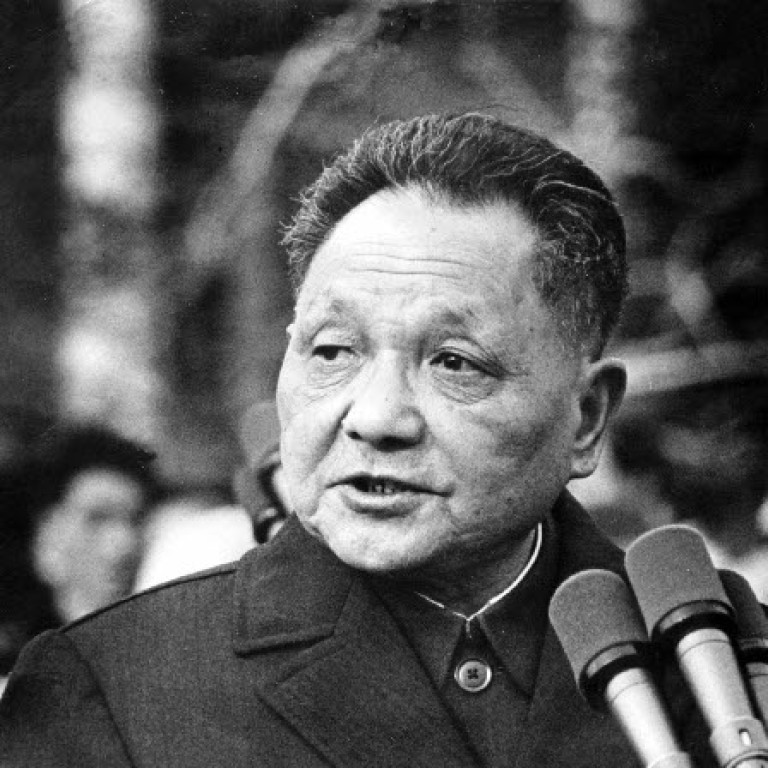
From Deng Xiaoping to Geoffrey Ma: Key movers and shakers on Hong Kong's Basic Law
Deng Xiaoping, April 16, 1987
"Hong Kong's system of government should not be completely westernised.
For a century and a half Hong Kong has been operating under a system different from those of Britain and the United States.
I am afraid it would not be appropriate for its system to copy those of Britain and the United States with, for example, separation of the three powers and a British or American parliamentary system."
Ji Pengfei, chairman of the Basic Law Drafting Committee, March 28, 1990
"The executive authorities and the legislature should check and balance each other while co-ordinating their activities.
To maintain Hong Kong's stability and administrative efficiency, the chief executive must have real power which, at the same time, should be subject to some restrictions."
Xiao Weiyun, mainland drafter of the Basic Law, 2003
"The chief executive is the head of the Hong Kong special administrative region and his legal status is above the executive authorities, legislature and the judiciary.
The political system adopted by the Basic Law is not the separation of powers although there is an element of check and balance between the executive and legislative branches in Hong Kong's political structure.
It is different from the separation of powers and what is being implemented is the system led by the chief executive."
Former chief justice Andrew Li Kwok-nang's speech at the opening of the 2010 legal year, January 11, 2010
"The Hong Kong system involves checks and balances between the executive, the legislature and the judiciary."
Chief Justice Geoffrey Ma Tao-li's speech at the opening of the 2014 legal year, January 14, 2014
"The Basic Law sets out clearly the principle of the separation of powers between the legislature, the executive and the judiciary, and in quite specific terms, the different roles of the three institutions."
Rao Geping, a member of the Basic Law Committee
“Check and balance between the three branches of government doesn’t mean separation of powers. It is actually three branches co-operated and check and balance among one another under the executive-led system”
"There is a possibility that [judges] are not entirely accurate on certain issues, such as those relating to the Basic Law. If judges interpret Hong Kong's political structure as a separation of powers, this is inaccurate. I think Zhang Xiaoming just gave some judges a kind reminder but it does not aim at undermining judicial independence in Hong Kong "
Secretary for Justice Rimsky Yuen Kwok-keung
“The Basic Law guarantees judicial and legislative supervision of the chief executive. Some media or interviewees said [the chief executive] could become a local king - this is absolutely impossible,”
Hong Kong Bar Association
“Irrespective of the description of the political role played by the chief executive, under the constitutional framework of the Basic Law he cannot be said to be above the law.
His (Zhang Xiaoming) description of the chief executive as having a ‘special legal status’ that transcends the institutions of the executive, the legislature and the judiciary’ would inevitably be taken by some as putting the chief executive in a position superior to the ‘three powers’, therefore provoking considerable anxiety among the public.
The HKBA considers these developments regrettable.
The HKBA would urge Mr Zhang and Secretary for Justice [Rimsky Yuen] to clarify the position as soon as possible in order to rectify any misconception caused by the statements, and to eliminate any unnecessary doubts that citizens of Hong Kong and the international community may have in relation to the implementation of the rule of law under the ‘one country, two systems."

